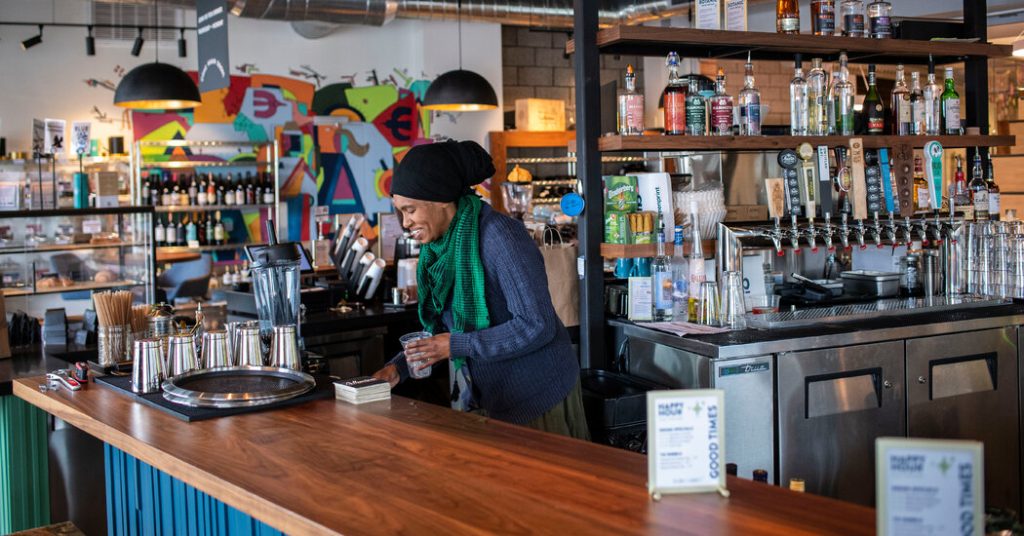Chris Treter, owner of Higher Grounds Trading Company, faced a challenge when he realized his new hires couldn’t find affordable housing in Traverse City, Michigan. Gentrification had caused prices to skyrocket, pushing out local residents and making it difficult for the workforce to afford to live in the city. To address this issue, Treter and several other entrepreneurs, including lawyer Kate Redman, developed a unique solution. They created a 47,000 square-foot building called Commongrounds that offered affordable residences, businesses, and community spaces. What set this project apart was the crowdfunding campaign that raised $1.3 million from nearly 500 residents and allowed them to earn dividends on their investment.
The $20 million development, which opened in late 2021, features income-based apartments, short-term rentals, a restaurant, commercial kitchens, a food market, a coffee training center, a performing arts center, co-working space, offices, and a Montessori preschool. The project is fully occupied and managed cooperatively by over 1,000 co-op members, who elect a nine-member board of directors. This community-owned cooperative real estate model has been gaining traction across the United States as a way to fund unconventional construction projects that traditional lenders may not support, focusing on community control and affordable real estate rather than market-driven development.
Similar cooperative projects can be found in cities like Oakland, Boston, and Atlanta, where residents have come together to invest in and own affordable housing and commercial spaces. In Oakland, the East Bay Permanent Real Estate Cooperative raised funds through a crowdfunding campaign to buy and renovate a four-unit apartment building in North Oakland. In Boston, individual investors raised money for a five-story building with affordable apartments and a bookstore on the ground floor. In Atlanta, the Guild established a worker-owned cooperative that allows local residents to buy shares and have a say in the development of affordable housing and community spaces.
In Traverse City, Commongrounds was driven by the principles of affordability and community oversight in response to the city’s rapid growth and rising prices. Residents and community activists invested in the project, and a crowdfunding campaign raised funds to finance construction. Jeff Hickman, a local vice president of a bank, arranged rural business and industry loan guarantees, and the building was designed by a local architect. The success of Commongrounds has sparked interest in developing more community-owned projects in Traverse City and beyond to meet the needs of residents and ensure that development benefits the community as a whole.
Overall, community-owned cooperative real estate projects are seen as a way to empower residents, promote economic inclusion, and address the affordable housing crisis in cities across the country. By allowing small investors to participate in development projects and giving local communities control over the development process, these projects aim to create sustainable, affordable, and community-focused spaces that benefit all residents. With the support of legal and development groups, cooperative projects are reshaping how real estate development is financed and carried out, with a focus on serving the needs of the community rather than maximizing profits.







